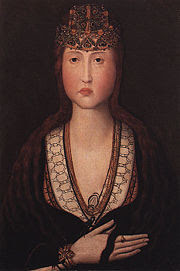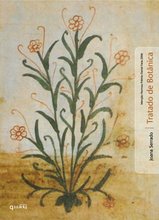by
P. D. James
Any consideration of the moral dimension of the crime novel inevitably raises a number of questions, not least, what do we mean by the word ‘morality’ in relation to a work of fiction, and whose morality are we concerned with, the writer’s, the detective’s or the murderer’s? The moral world which the characters inhabit and which the author explores is also defined by the type of novel under consideration. There is, I suggest, a difference between crime writing generally, which can range over an extraordinarily wide spectrum both of books and writers, and its more structured and conventional form, the classical detective story. The latter has at its heart a mysterious crime, usually murder, a closed circle of suspects with motive, means and opportunity for the deed, a detective who comes in rather like an avenging deity to solve the crime and, by the end of the book, a solution which the reader should be able to arrive at by logical deduction from clues incorporated in the plot with deceptive cunning but essential fairness. The form has, in fact, been described as a successor to the old morality plays and it certainly works most successfully if the detective, whether amateur or professional, can be seen by the reader to be in some way the embodiment of justice. The traditional English detective story has never condoned murder, nor indeed has usually expressed any sympathy for the murderer, and part of its attraction, particularly in turbulent and uncertain times, has been its comforting reassurance that we live in a moral and comprehensible universe, with virtue as the norm and crime an aberration, in which it is the duty of reasonable human beings to bring order out of disorder. To that extent, of course, the detective story stands in the tradition of the canon of the British novel of social realism.
In other forms of crime writing, of which Graham Greene’s Brighton Rock is an example, the reader may know from the beginning who is guilty of the crime and the interest is less in ratiocination than in the effect of the deed on the perpetrator and on society and whether, in fact, he or she will be finally caught. Here the moral compass is less fixed. There may indeed be some authorial sympathy for the murderer, borne perhaps of the writer’s understanding of his character’s early deprivations and experiences, the compulsions and the lack of love, which have led him to destroy life. Some writers have even shown sympathy verging on approbation. Patricia Highsmith, for example, has a psychopath as hero and we are hardly invited to condemn. And in the so-called hard-boiled crime novels, particularly in America, the detective may be as much at war with the criminal justice system as he is with the villain. As Georges Simenon, creator of the Maigret books, said in a 1960s interview, ‘Deep down the policeman understands the criminal because he can see easily how he became one. They inhabit the same underworld.’
This moral ambivalence was hardly true of the detectives or the moral dimension of the so-called golden age of detective fiction. Even allowing for the social attitudes of the 1930s, the inter-war detective story was simplistic in its treatment of morality and there is some justice in the criticism that it was the product of a class-ridden and basically puritanical society defending the inalienable right of the possessor to protect his possessions against the greed and envy of predators, and one in which the working-class, including many policemen, were treated as buffoons or simpletons. There was small, if any, sympathy for the murderers and it was accepted that when caught they would hang, although Agatha Christie, arch-purveyor of cosy reassurance, is careful not to allow the dark shadow of the public hangman to fall upon her essentially comforting pages. The novels were, of course, written as entertainment and, particularly during the war, as a necessary antidote to danger and death, and to be too stringent in criticism now is probably as unrealistic as criticising Jane Austen because she did not deal with the Napoleonic Wars or the brutality of the criminal justice system.
Today the detective story, like many other crime novels, combines an age-old fascination with mysterious death and violence with a concern for less atavistic emotions and the circumstances which give rise to them. The murderer is not commonly admired and he is still seen as someone whom the agents of the State are justified – indeed required – to hunt down. But he is less a convenient stereotype for a simplistic battle between good and evil than a complicated and possibly suffering human being, as much at the mercy of his genes, his upbringing and his experience as is the detective who is nominally his enemy. In the detective story murder remains the unique crime, the one for which no reparation can ever be made, but the reader’s horror or disgust can be tinged with understanding or even pity. The detective remains the hero, that symbol of triumphant individualism, who may – indeed must – be fallible but never corrupt. To that extent the morality is still the age-old conflict between good and evil, fought out in the contemporary world with all its shibboleths, its convenient compromises, its smudged morality, its suspicion of too apparent virtue. We can be confident by the end that the murderer will be caught and justice vindicated, if only the imperfect justice of fallible human beings. To that extent the modern detective story, with its moral ambiguity, its greater realism and its preoccupation with issues which go beyond the process of ratiocination, can claim to fulfil what Henry James wrote is the business of fiction: to help the heart of man to know itself.
P. D. James is an award-winning crime writer. Her latest novel is The Lighthouse.
sexta-feira, 13 de junho de 2008
Subscrever:
Enviar feedback (Atom)
Emparedada/Uit de Muur

Um ciclo de poemas portugueses e neerlandeses
Klompen / Socos
Klompen/ Socos
Klompen/ Socos: tamancos, chinelas de pau, tb. acto de toque fisico, agressivo, da /tua, minha/ mao na / minha, tua/ face
Klompen
Gostava de te dizer como são os meus passos que me afastam de ti.
Como não vivo para ti, nem escrevo para ti.
Como não penso no meu amor, nem te amo em pensamento.
Como não te vejo nos lugares onde nunca estivemos juntos.
Como tu não me pisas quando me obrigas a seguir os teus passos,
ou como não me calcas quando descalças os pés às leonores
que bebem da tua fonte.
Como caminho firme e confiante pelos prados holandeses, entre as vacas e a lama,
e me afasto cada vez mais de ti.
Como os meus passos se afastam dos teus passos, correndo para longe, longe,
esperando que o mundo seja realmente redondo, e não plano,
e possa, um dia, chegar às tuas costas, tapar os teus olhos e dizer-te
mijn thuisland is niet meer mijn taal.
Socos
Ik wilde je zeggen hoe mijn stappen zijn die mij van je verwijderen.
Hoe ik niet leef voor jou, niet eens schrijf voor jou.
Hoe ik niet denk aan mijn liefde en je evenmin bemin in gedachten.
Hoe ik je niet zie op de plaatsen waar we nooit samen waren.
Hoe je me niet vertrapt wanneer je me dwingt je stappen te volgen,
of hoe je me niet plet wanneer je de schoenen uittrekt
van de leonoors die drinken uit jouw bron.
Hoe ik ferm en vol vertrouwen door de Nederlandse weiden loop,
tussen koeien en modder, en me steeds verder van je verwijder.
Hoe mijn stappen zich verwijderen van jouw stappen, rennend naar de verre verten,in de hoop dat de wereld werkelijk rond is, en niet plat,
en dat ik op een dag achter je sta, mijn handen op je ogen leg en zeg
a minha pátria já não é a minha língua.
Joana Serrado, Emparedada/ Uit de Muur, Uitgeverij de Passage, 2009, p. 32, 33
Klompen
Gostava de te dizer como são os meus passos que me afastam de ti.
Como não vivo para ti, nem escrevo para ti.
Como não penso no meu amor, nem te amo em pensamento.
Como não te vejo nos lugares onde nunca estivemos juntos.
Como tu não me pisas quando me obrigas a seguir os teus passos,
ou como não me calcas quando descalças os pés às leonores
que bebem da tua fonte.
Como caminho firme e confiante pelos prados holandeses, entre as vacas e a lama,
e me afasto cada vez mais de ti.
Como os meus passos se afastam dos teus passos, correndo para longe, longe,
esperando que o mundo seja realmente redondo, e não plano,
e possa, um dia, chegar às tuas costas, tapar os teus olhos e dizer-te
mijn thuisland is niet meer mijn taal.
Socos
Ik wilde je zeggen hoe mijn stappen zijn die mij van je verwijderen.
Hoe ik niet leef voor jou, niet eens schrijf voor jou.
Hoe ik niet denk aan mijn liefde en je evenmin bemin in gedachten.
Hoe ik je niet zie op de plaatsen waar we nooit samen waren.
Hoe je me niet vertrapt wanneer je me dwingt je stappen te volgen,
of hoe je me niet plet wanneer je de schoenen uittrekt
van de leonoors die drinken uit jouw bron.
Hoe ik ferm en vol vertrouwen door de Nederlandse weiden loop,
tussen koeien en modder, en me steeds verder van je verwijder.
Hoe mijn stappen zich verwijderen van jouw stappen, rennend naar de verre verten,in de hoop dat de wereld werkelijk rond is, en niet plat,
en dat ik op een dag achter je sta, mijn handen op je ogen leg en zeg
a minha pátria já não é a minha língua.
Joana Serrado, Emparedada/ Uit de Muur, Uitgeverij de Passage, 2009, p. 32, 33
A minha pátria não é a minha língua
In Nederland wil ik sterven,
En in de natte grond bederven
Joana Slauerhoff



Sem comentários:
Enviar um comentário